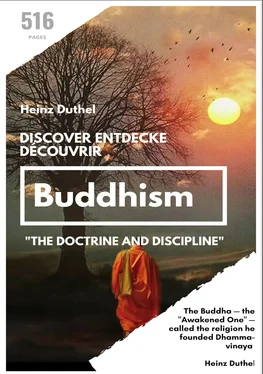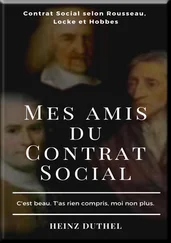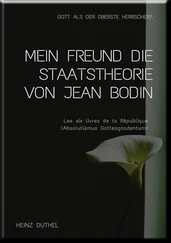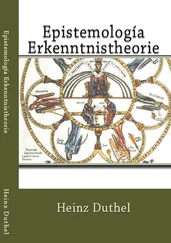Although most of us who are parents can only dream of teaching our children as consciously and effectively as the Buddha did, we can still learn from his example. But before we can translate his example into action, there is one crucial point to recognize: the Buddha's instructions to his son were given by someone who really knew what he was talking about; Rahula's teacher was someone who truly practiced what he preached, a role model par excellence. So the message is clear: if we hope to instruct our children about matters concerning the path of Dhamma, we had better be sure that we ourselves are practicing on that path. If you extol the virtues of skillful qualities such as generosity, truthfulness, and patience, but your children only see you being stingy, overhear you telling lies, or see you losing your temper, then your message will be lost. Of course, you need not have perfected the Dhamma in order to instruct your children, but for your instruction to carry any weight your children must be able to witness firsthand that you are earnestly striving to put these same teachings into practice yourself. And if you can inspire them by your example and give them the skills they need to know to live in tune with the Dhamma, then you've given them a rare gift indeed:
The wise hope for a child
of heightened or similar birth,
not for one
of lowered birth,
a disgrace to the family.
These children in the world,
lay followers,
consummate in virtue, conviction;
generous, free from stinginess,
shine forth in any gathering
like the moon
when freed from a cloud.
If you're looking for books to read to (or with) a younger child, I recommend the series of colorfully illustrated Jataka2 story books and coloring books available from Dharma Publishing. These books (in the "Jataka Tales Series") recount stories of the Buddha's former lives and provide many opportunities for discussion of basic moral principles with children. They are most appropriate for children under 10.
Are Buddhists vegetarian?
Some are, some aren't. From the Theravada perspective, the choice of whether or not to eat meat is purely a matter of personal preference. Many Buddhists (and, of course, non-Buddhists) do eventually lose their appetite for meat out of compassion for the welfare of other living creatures. But vegetarianism is not required in order to follow the Buddha's path.
Although the first of the five precepts, the basic code of ethical conduct for all practicing Buddhists, calls upon followers to refrain from intentional acts of killing, it does not address the consumption of flesh from animals that are already dead. Theravada monks, however, are clearly forbidden to eat meat from a few specific kinds of animals, but for reasons not directly related to the ethics of killing.1 Monks are free to pursue vegetarianism by leaving uneaten any meat that may have been placed in the alms bowl, but because they depend on the open-handed generosity of lay supporters2 (who may or may not themselves be vegetarian) it is considered unseemly for them to make special food requests. In those parts of the world (including wide areas of south Asia) where vegetarianism is uncommon and many dishes are prepared in a meat or fish broth, vegetarian monks would soon face a simple choice: eat meat or starve.3
Taking part in killing for food is definitely incompatible with the first precept, and should be avoided. This includes hunting, fishing, trapping, butchering, steaming live clams, eating live raw oysters, etc.
And what about asking someone else to catch and kill the animal for me? On this point the teachings are also unambiguous: we should never intentionally ask someone to kill on our behalf. We should not, for example, order a fresh steamed lobster from the restaurant menu. The Dhammapada expresses this sentiment succinctly:
All
tremble at the rod,
all
hold their life dear.
Drawing the parallel to
yourself,
neither kill nor get others to kill.
And what about purchasing meat of an animal that someone else killed? Is this consistent with the Buddhist principles of compassion and non-harming, a cornerstone of right resolve? This is where things get tricky, and where the suttas offer only spotty guidance. In the Buddha's definition of right livelihood for a lay person, one of the five prohibited occupations is "business in meat" [AN 5.177]. Although he does not explicitly state whether this prohibition also extends to us, the butcher's clients and customers, it does place us uncomfortably close to a field of unskillful action.
To summarize what the suttas tell us: it appears that one may, with a clear conscience, receive, cook, and eat meat that either was freely offered by someone else, or that came from an animal who died of natural causes. But as to purchasing meat, I am just not sure. There are no clear-cut answers here.
We are all guilty of complicity, in one way or another and to varying degrees, in the harming and death of other creatures. Whether we are carnivore, vegan, or something in between, no matter how carefully we choose our food, somewhere back along the long chain of food production and preparation, killing took place. No matter how carefully we trod, with every step countless insects, mites, and other creatures inadvertently perish under our feet. This is just the nature of our world. It is only when we escape altogether from the round of birth and death, when we enter into the final liberation of nibbana — the Deathless — can we wash our hearts clean, once and for all, of killing and death. To steer us towards that lofty goal, the Buddha gave us very realistic advice: he didn't ask us to become vegetarian; he asked us to observe the precepts. For many of us, this is challenge enough. This is where we begin.
Are there any enlightened people in the world nowadays?
How can I tell who's really enlightened?
I wouldn't be a Buddhist if I didn't think enlightenment were possible. The Buddha himself observed that as long there are people practicing correctly in line with the noble eightfold path, there will continue to be enlightened beings in the world (DN 16). Even better evidence of the reality of enlightenment lies in the "gradual" nature of the Buddha's teachings. In the suttas, the Buddha speaks again and again of the many rewards awaiting those who follow the Path, long before they reach nibbana: the happiness that comes from developing generosity; the happiness that comes from living according to principles of virtue; the happiness that comes from developing loving-kindness (metta); the happiness that comes from practicing meditation and discovering the exquisite bliss of a quiet mind; the happiness that comes from abandoning painful states of mind; and so on. These can be tasted for yourself, to varying degrees, through Dhamma practice. Once you've personally verified a few of the Buddha's teachings, it becomes ever-easier to accept the possibility that the rest of his teachings are plausible — including his extraordinary claim that enlightenment is accessible to us.
It's probably best not to spend too much time speculating on someone else's degree of enlightenment, simply because our own delusion and defilements are bound to cloud our vision and distort our assessment of others' attainments or lack thereof. Our time is far better spent looking inwards and asking of ourselves: "Am I enlightened? Have I made an end of suffering and stress?" If the answer is negative, then we have more work to do.
Some lines of questioning regarding someone else's purity are, however, well worth pursuing — especially when deciding whether or not to accept that person as your teacher: "Does this person seem to be truly happy? Does he live by the precepts? Is her interpretation of Dhamma a valid one? Can I learn something of real value from him?" It can take a long and close association with someone before you can begin to answer these questions with any confidence (AN 4.192). But if you do find someone possessing this rare constellation of good qualities, stay with that person: he or she probably has something of lasting value to teach you.
Читать дальше












